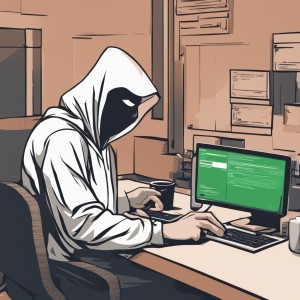
Greed fuels hacking, a toxic duo corroding trust and integrity
Imagine my excitement when I received an email from none other than the illustrious "Top 10 Companies in the Middle East," inviting me to register on their website for access to business opportunities and funds. With my extensive training and experience, you'd think I'd be quick to sniff out a scam, but alas! It took me a few hours to realize I was being reeled in by a phishing expedition.
In today's digitally driven research landscape, the threat of phishing attacks looms large, as evidenced by many cyber incidents like the breach in Ireland's public health system.
After fooling an employee with a fake email and a harmful file, hackers broke into Ireland's public health system using that person's infected computer. They spent weeks exploring the network, hopping from one hospital to another, snooping around folders, and opening private files. By the time they asked for ransom, they'd taken control of more than 80% of the IT system. This forced over 100,000 people offline and endangered thousands of patients.
Researchers must prioritize cybersecurity by implementing proactive measures. This includes investing in cybersecurity awareness training to help staff recognize phishing attempts, verifying sender identities before clicking on links or downloading attachments, deploying email filtering tools, enabling multi-factor authentication, keeping software updated, and fostering a culture of reporting suspicious activity. By staying informed, vigilant, and prepared, researchers can effectively safeguard their valuable work against the pervasive threat of phishing attacks.
